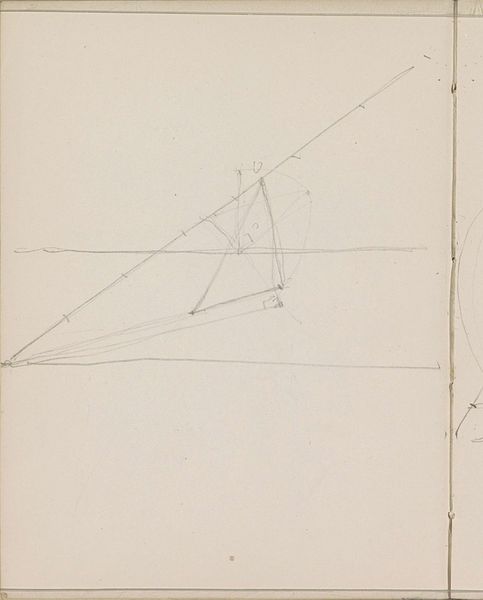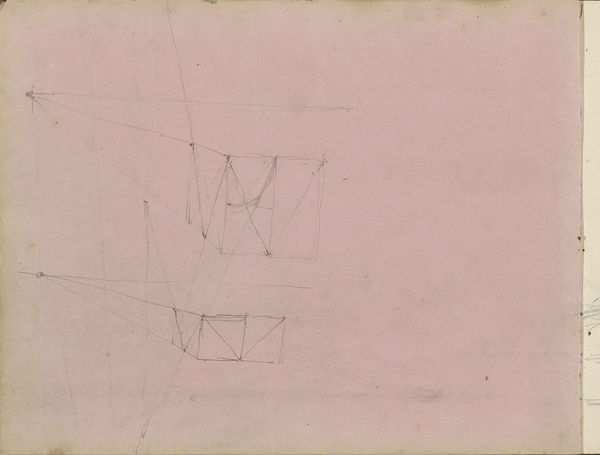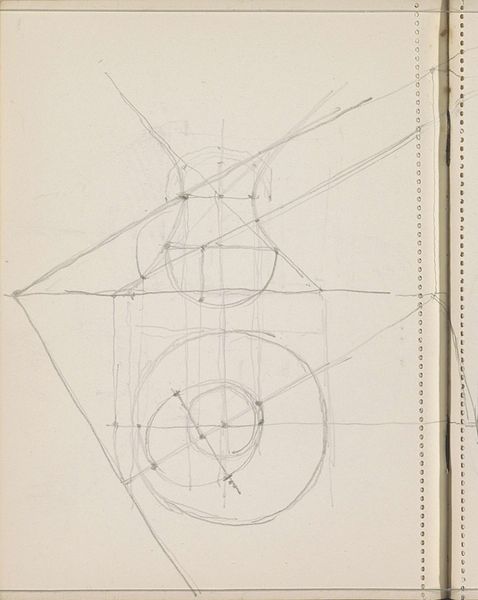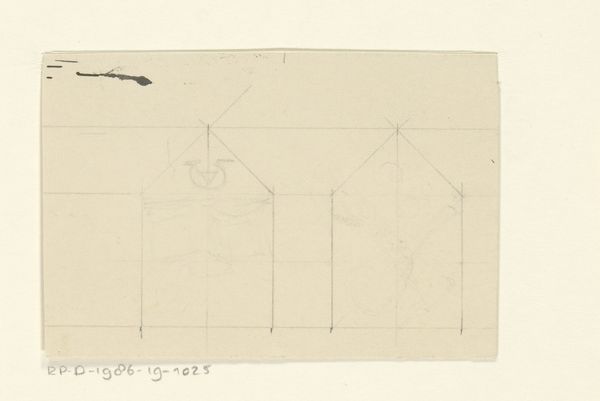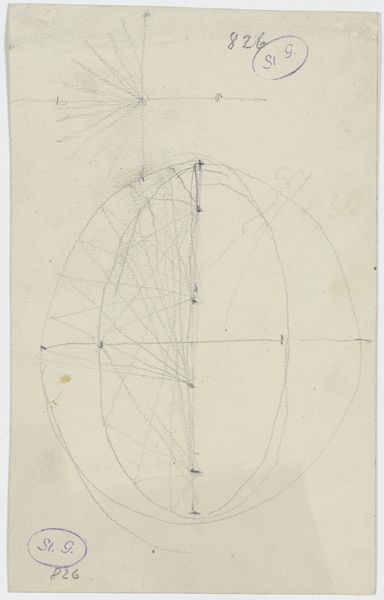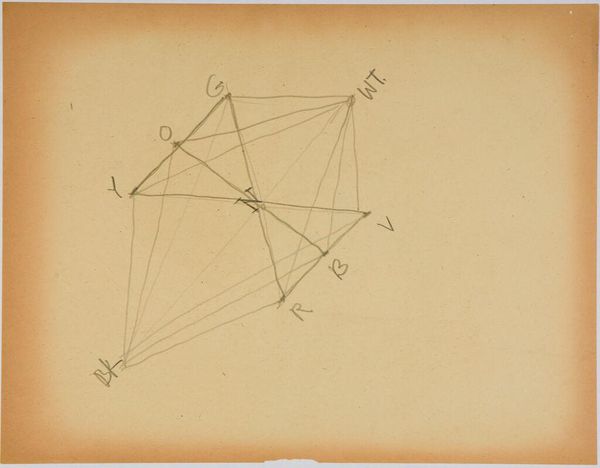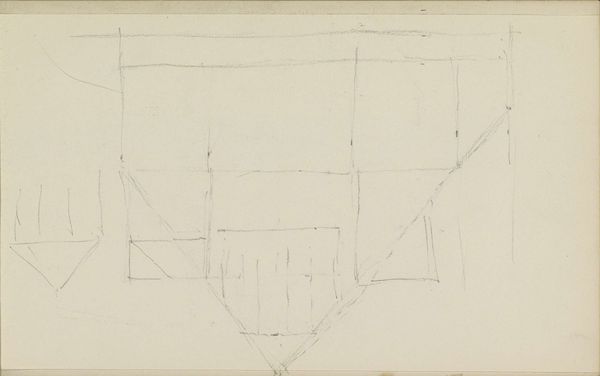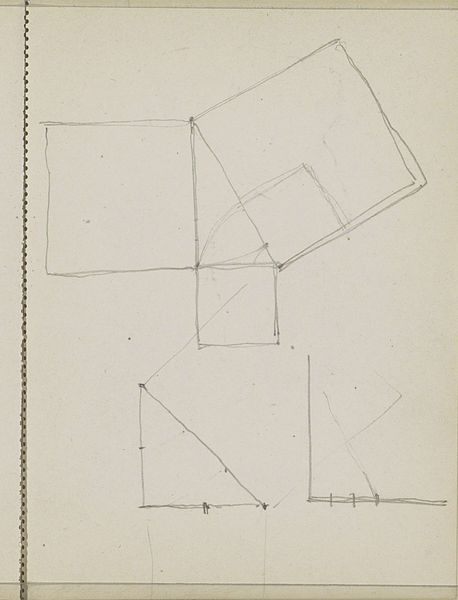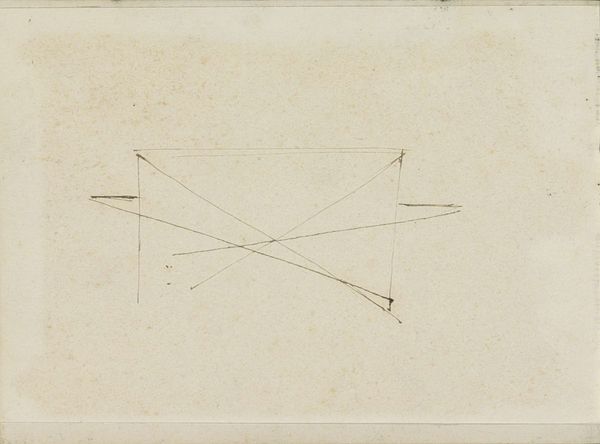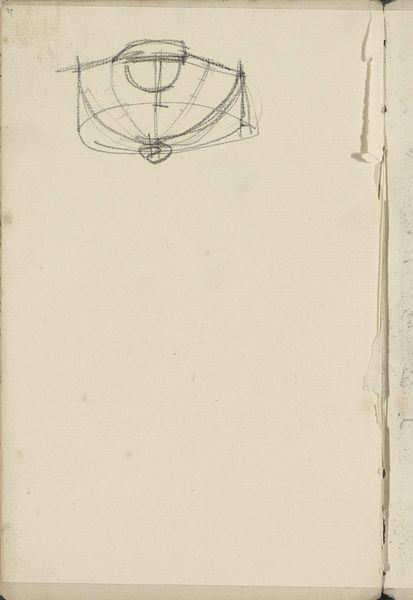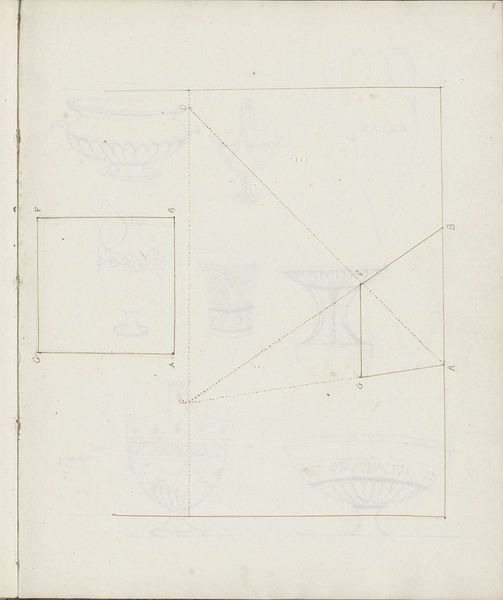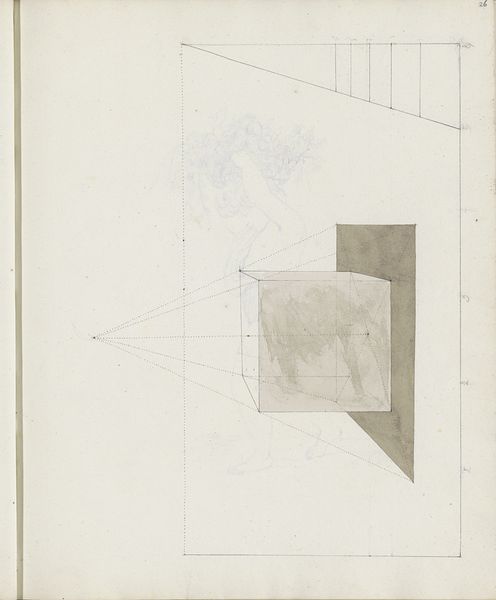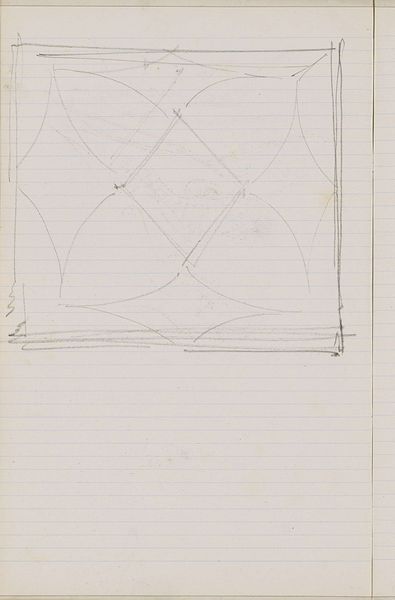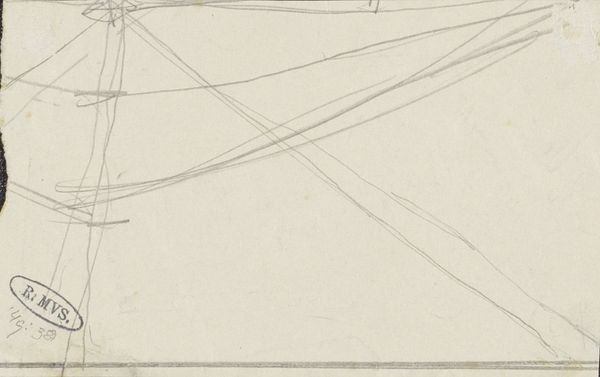
drawing, paper, pencil
drawing
paper
form
geometric
pencil
abstraction
line
Copyright: Rijks Museum: Open Domain
Julie de Graag made this drawing, "Compositie met geometrische lijnen," using graphite, probably in the early 20th century. It presents a network of lines and shapes, where circles intersect with triangles. It is a window into the artist's design process, showing the underlying structure of a future artwork. De Graag worked during a period of immense cultural change. The Netherlands, like other European countries, was experiencing industrialization and modernization, and artists were exploring new ways of representing the world. Theosophy, with its interest in hidden geometric orders, also influenced a move away from traditional naturalism. As art historians, we can look at artists' letters, exhibition catalogs, and the writings of contemporary critics to understand the cultural context for this drawing. We can then understand the meaning of art as something that is contingent on social and institutional context.
Comments
No comments
Be the first to comment and join the conversation on the ultimate creative platform.
